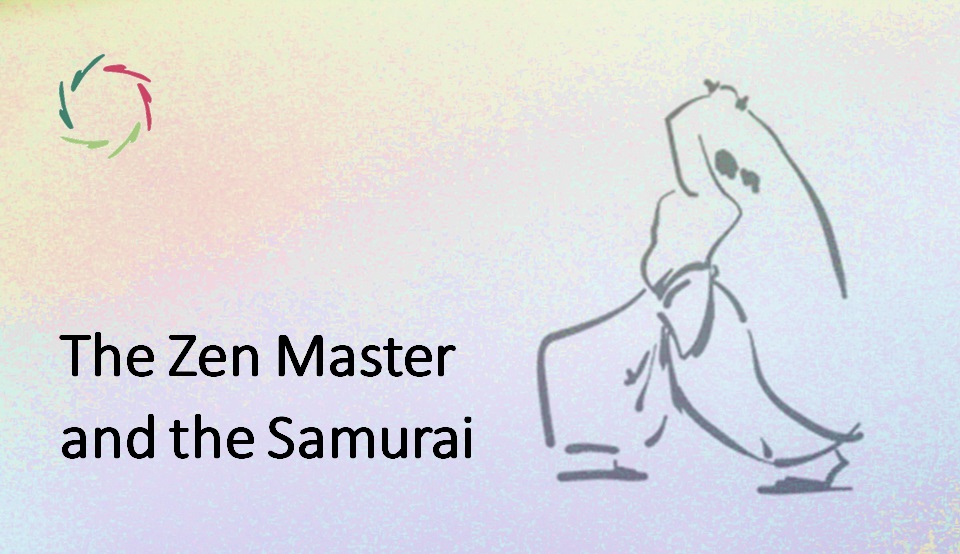The Zen Master and the Samurai

A story from ancient Japan.
A samurai approaches a Zen master
with the question: “Your honor, people say that you are amongst the most enlightened masters currently alive. I came to you, especially from the other side of the country. Could you, please, give me some clarification about a question that has kept nagging me for years?
My question is:
What are heaven and hell?”
The Zen master immediately shouts out something like: ”Get lost, you fool, and do no longer bother me with stupid questions you do not understand yourself!”
The samurai loses control, draws his sword, and calls out: “You old, shameless, wrinkled bone-bag, I will pierce you with my sword!”
“Well then,’ the Zen master replies calmly, “what you show me now is hell.”
Just in time, the samurai gets a grip on himself. He sheets his sword and makes a deep bow.
“And this,” the Zen master continues, “is heaven.”
The samurai bows even deeper and is enlightened.
Why does the samurai calm down, and does he thank the Zen master?
Is it because the Zen master shows his emotion to the samurai ― i.e., great anger?
Suppose the Zen master would have replied: “You fool, why do you need to get so angry over such a little matter?” The samurai would soon have taken decisive action.
><
The Zen master gives him attention and respect
by replying very adequately and thoughtfully to his question.
The Zen master also shows enormous courage, so he speaks the language of the samurai. Again: attention, respect. Besides, when you look carefully, you will see that the Zen master, in his first answer, was already speaking the language of the samurai.
As a result, the samurai listens to him, which is, of course, the purpose of the Zen master. Had he given an elaborate response to the samurai, the latter wouldn’t have listened anyhow.
The samurai feels the respect and the value of the insight in the question about heaven and hell. Namely: heaven and hell are not to be sought elsewhere but in the here and now.
So take care of the here and now.
The Samurai receives a big gift from the Zen master, acknowledges it, and reacts fittingly.


